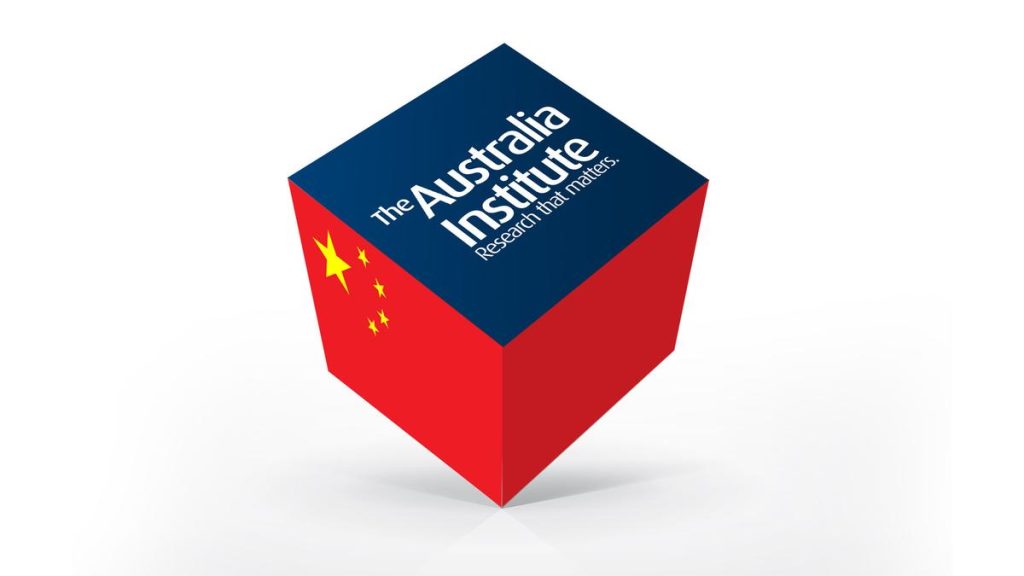Listen to the article
Think Tank Founder Criticizes Former Organization for Pro-China South China Sea Report
The founder of the Australia Institute has publicly criticized his former organization for publishing a paper he claims defends China’s controversial territorial claims in the South China Sea, marking a significant rift in Australia’s progressive policy landscape.
Clive Hamilton, Professor of Public Ethics at Charles Sturt University and founder of the Australia Institute in 1994, expressed dismay over the think tank’s recent publication titled “How China Sees the South China Sea,” which he argues reproduces Chinese state propaganda while ignoring the plight of those affected by Beijing’s aggressive actions in the region.
“I was dismayed last month by the publication of a paper by my old institute that defended the unlawful claims of an oppressive regime, provided cover for its bullying of weaker nations, and ignored its attacks on innocent people trying to make a living,” Hamilton wrote.
According to Hamilton, the paper attempts to justify China’s territorial claims by suggesting they are historically legitimate, downplaying their scope, and minimizing the significance of the 2016 ruling by the International Court of Arbitration in The Hague. That landmark decision rejected China’s “nine-dash line” claims as having no foundation in international law after the Philippines filed a formal complaint against Beijing.
Despite this ruling, which has been widely accepted by the international community, China has continued to militarize the region by building bases on disputed islands and equipping them with missiles and airstrips capable of hosting nuclear bombers within range of Australia. The Chinese government has also been accused of systematically coercing and bullying neighboring nations, particularly the Philippines and Vietnam.
Hamilton points to specific incidents that were overlooked in the Australia Institute’s report, including Vietnamese fishers injured by Chinese coast guard water cannons and a Philippines navy sailor hurt when his vessel was rammed by a Chinese ship in Filipino waters. “Perhaps the authors of the paper could contact these victims and explain to them that they were illegally in waters owned by China,” he remarked sarcastically.
The professor draws parallels between current apologetics for China’s behavior and past defenses of Soviet actions, citing Tony Judt’s study of French intellectuals who justified the 1956 invasion of Hungary as a defensive move by an empire under threat. He suggests similar logic is being employed today to rationalize both China’s activities in the South China Sea and Russia’s invasion of Ukraine.
Hamilton also raises concerns about the Australia Institute’s funding sources, noting that the organization has adopted a policy of donor secrecy that contrasts with the transparency he maintained during his leadership. He references reports that Andrew Forrest’s charity, the Minderoo Foundation, recently made a large donation to the Institute. Forrest has been characterized as “Australia’s most enthusiastic pro-Beijing business leader.”
Instead of accepting the Australia Institute’s perspective, Hamilton suggests Australians would be better served by listening to critics like Cai Xia, a former professor at China’s Central Party School who was expelled from the Communist Party after criticizing President Xi Jinping. Cai has warned that “Chinese authorities have deliberately heightened tensions in the South China Sea” and that Xi is pursuing a “China-centric world order” through “risky and aggressive behavior.”
The public disagreement highlights growing tensions within Australia’s policy community regarding the appropriate stance toward China’s territorial ambitions and broader geopolitical strategy in the Indo-Pacific region.
Fact Checker
Verify the accuracy of this article using The Disinformation Commission analysis and real-time sources.




8 Comments
This is a concerning development if the think tank is indeed promoting Chinese government propaganda. Maintaining an objective and balanced perspective is crucial, especially on sensitive geopolitical issues like the South China Sea dispute.
I agree, it’s important that think tanks remain independent and not become mouthpieces for authoritarian regimes. Transparency around funding sources and research methodologies is essential to uphold credibility.
This situation highlights the importance of maintaining the independence and impartiality of research institutions, especially on matters of national security and international relations. Transparency and accountability should be the top priorities.
Well said. Think tanks must be vigilant in upholding their principles and resist any attempts, overt or covert, to hijack their research agenda for political gain. The public’s trust is at stake.
I’m curious to learn more about the specific claims made in the think tank’s paper and how they compare to the established facts and legal rulings regarding the South China Sea dispute. Objective analysis is crucial in these complex geopolitical issues.
The founder’s strong rebuke of his former organization’s work is concerning. Rigorous peer review and open debate are essential to ensure think tank research maintains the highest standards of integrity and objectivity.
The founder’s criticism of his former organization raises valid questions about the integrity of their research and the potential influence of foreign interests. Rigorous fact-checking and diversity of perspectives are needed to counter disinformation.
Absolutely. Accusations of promoting state propaganda are serious and should be investigated thoroughly. The public deserves to know the truth, not distorted narratives that serve the agenda of repressive governments.